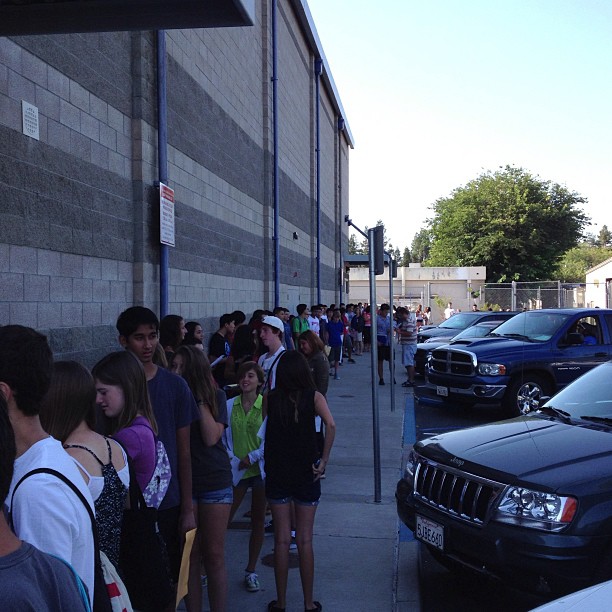Homework, extracurriculars and transitions all causes of stress for students

By Teagan Gerstel,
BlueDevilHUB.com Staff–
22 percent of Davis students said they missed school because they felt very sad, hopeless, anxious, stressed or angry, according the the most recent Healthy Kids Survey.
“I have missed school because of stress a lot,’’ junior Kendall Martinez said.
There are many different causes of stress.
“Each grade is faced with their own stressors,” Davis High counselor Courtenay Tessler said. “Sophomores have the stress of transitioning from junior high to high school, juniors have the stress of getting good grades to get into college and seniors have the stress of applying and meeting deadlines for college.”
Tessler added that a number of other things add to student stress: the future, grades, more challenging subjects, peer pressure, transitioning from teenager to adult and mental health.
“Having a teacher that doesn’t teach very well, and having to learn on your own at home; which causes you to fall behind also stresses me out,” “ junior Caitlin Davis said.
The Healthy Kids Survey was last given in the school year of 2014-2015. It asked students to rate this quote: “My classes are challenging.” The results showed: five percent strongly disagree, five percent disagree, 23 percent neither agree nor disagree, 41 percent agree and 26 percent strongly agree.
“Having a lot of homework and tests cause me stress,” junior Tara Thomas said.
The amount of homework students are faced with can cause students to become stressed and overwhelmed.
Students have many classes that require a lot of work on top of extracurricular activities. Martinez said that because of these she “can’t finish homework sometimes.”
There are many ways parents and teachers can help students deal with stress.
“Teachers can notice when a student is not doing well and take a few minutes to connect with them,” Tessler said.
Spencer Elliot teaches English 10, English 10 honors and ACES. In Elliot’s opinion, “students are often really good at being stressed out but not showing it.” He also mentioned that students are more likely to talk to a friend about what is stressing them out rather than going to talk to a teacher or parent.
“Everyone is unique,” Elliot said.
Some students feel that teachers can do more than talk to students to help reduce their stress. “Teachers can let us know about tests earlier,” Thomas said.
Davis has her own suggestions for teachers that can help reduce stress for students.
“Teachers can make sure they are willing to spend time explaining the problems to you that you don’t understand,” Davis said. “I don’t think teachers try to reduce stress because they think we will be able to organize our time efficiently.”
According to the Healthy Kids Survey, students were asked whether ,“My teachers work hard to help me with my school when I need it.” The survey showed: 6 percent strongly disagree, 8 percent disagree, 30 percent neither agree nor disagree, 42 percent agree, 14 percent strongly agree.
As a counselor, Tessler said that she can help providing stressed students by individual counseling, stress management, recommend outside therapy and class changes if they are too difficult. She said parents also have a role.
“Parents can: not put pressure where they only value earned grades, make sure their child is well balanced […], give support, value their child no matter their choices and provide medical and psychological help if needed,” Tessler said.
There are also many things students can do to manage their own stress.
“I focus on one subject and don’t think about all the other things I have to do,” Davis said.
Time management and planning can also be helpful.
“I work on the weekends to reduce my workload for the week” Martinez said.
Students took the Healthy Kids Survey again in October and results about stress and other issues will be available later in 2017.



